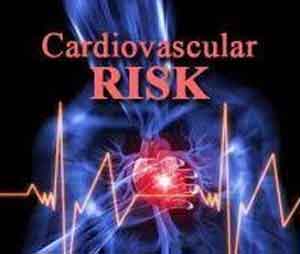- Home
- Editorial
- News
- Practice Guidelines
- Anesthesiology Guidelines
- Cancer Guidelines
- Cardiac Sciences Guidelines
- Critical Care Guidelines
- Dentistry Guidelines
- Dermatology Guidelines
- Diabetes and Endo Guidelines
- Diagnostics Guidelines
- ENT Guidelines
- Featured Practice Guidelines
- Gastroenterology Guidelines
- Geriatrics Guidelines
- Medicine Guidelines
- Nephrology Guidelines
- Neurosciences Guidelines
- Obs and Gynae Guidelines
- Ophthalmology Guidelines
- Orthopaedics Guidelines
- Paediatrics Guidelines
- Psychiatry Guidelines
- Pulmonology Guidelines
- Radiology Guidelines
- Surgery Guidelines
- Urology Guidelines
Emotional trauma in lesbian and bisexual women risk factor for CVD

A new study reports that lesbian and bisexual women undergoing trauma including abuse and neglect suffer from a higher cardiovascular disease.
The findings presented at the American Heart Association revealed that sexual minority women with increased severity of childhood, adulthood or lifetime trauma had a higher risk of post traumatic stress disorder and a perception of less social support.
Read Also: Lesbian, gay ,bisexual youth at higher risk of Diabetes , finds study
Sexual minority (lesbian and bisexual) women are more likely than heterosexual women to be stressed, use tobacco, binge drink and be obese.
The authors studied 547 sexual minority women, measuring three forms of childhood trauma: physical abuse, sexual abuse, and parental neglect; three forms of adult trauma: physical abuse, sexual abuse, and intimate partner violence; and lifetime trauma, which was the sum of childhood and adulthood trauma. They analyzed how increasing trauma severity was associated with higher report of several cardiovascular risk factors.
Read Also: Should all patients be asked about their sexual orientation?
The key study findings included are:
- 30 percent more likely to have anxiety if they experienced more forms of adulthood trauma.
- 41 percent more likely to be depressed if they reported increased forms of childhood trauma and 22 percent more likely to be depressed if they had experienced more forms of lifetime trauma.
- 44 percent more likely to report overeating in the past three months if they experienced increased forms of childhood trauma.
- 58 percent more likely to have diabetes if they experienced the increasing severity of childhood trauma, and lifetime trauma notably increased their risks of obesity and high blood pressure.
“These findings suggest healthcare providers should screen for trauma as a cardiovascular disease risk factor in this population,” write the authors.
For reference log on to American Heart Association

Disclaimer: This site is primarily intended for healthcare professionals. Any content/information on this website does not replace the advice of medical and/or health professionals and should not be construed as medical/diagnostic advice/endorsement or prescription. Use of this site is subject to our terms of use, privacy policy, advertisement policy. © 2020 Minerva Medical Treatment Pvt Ltd